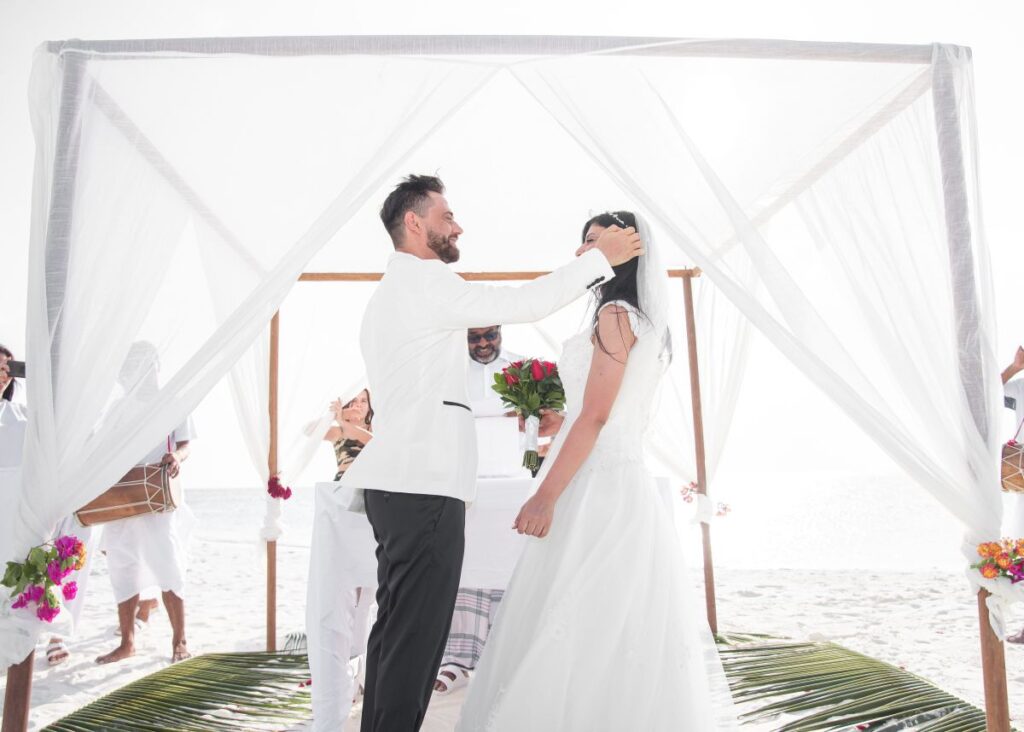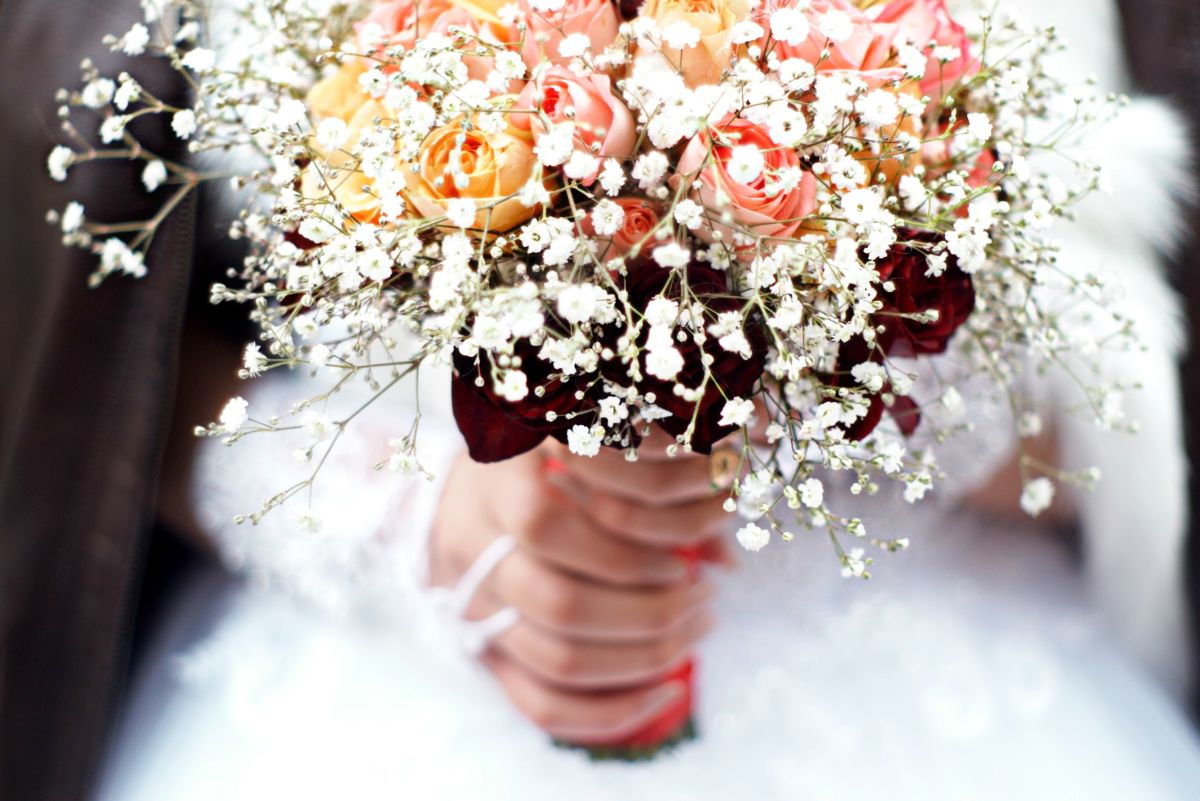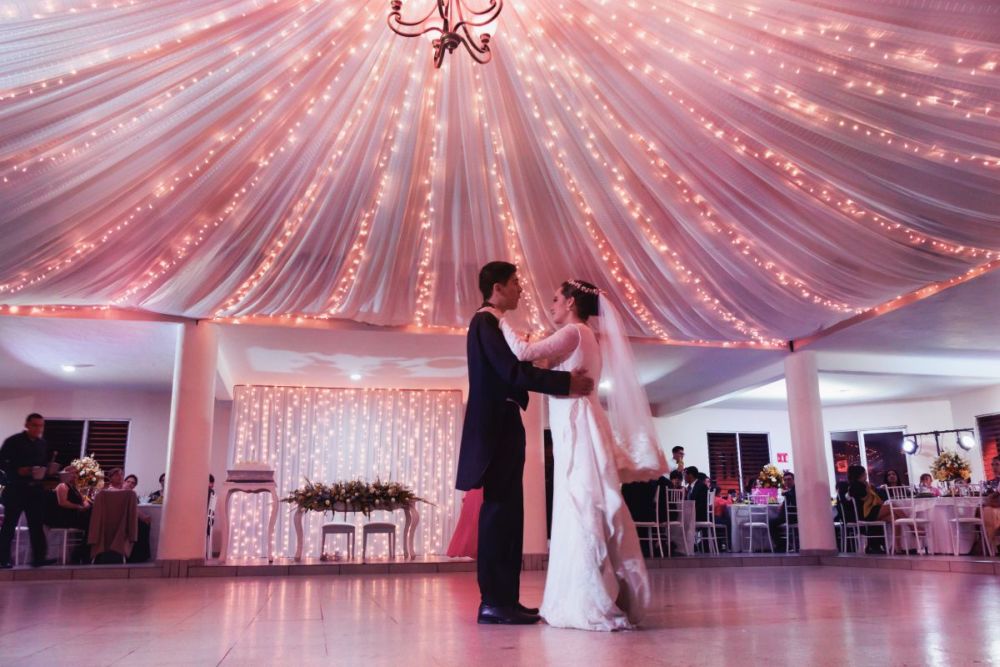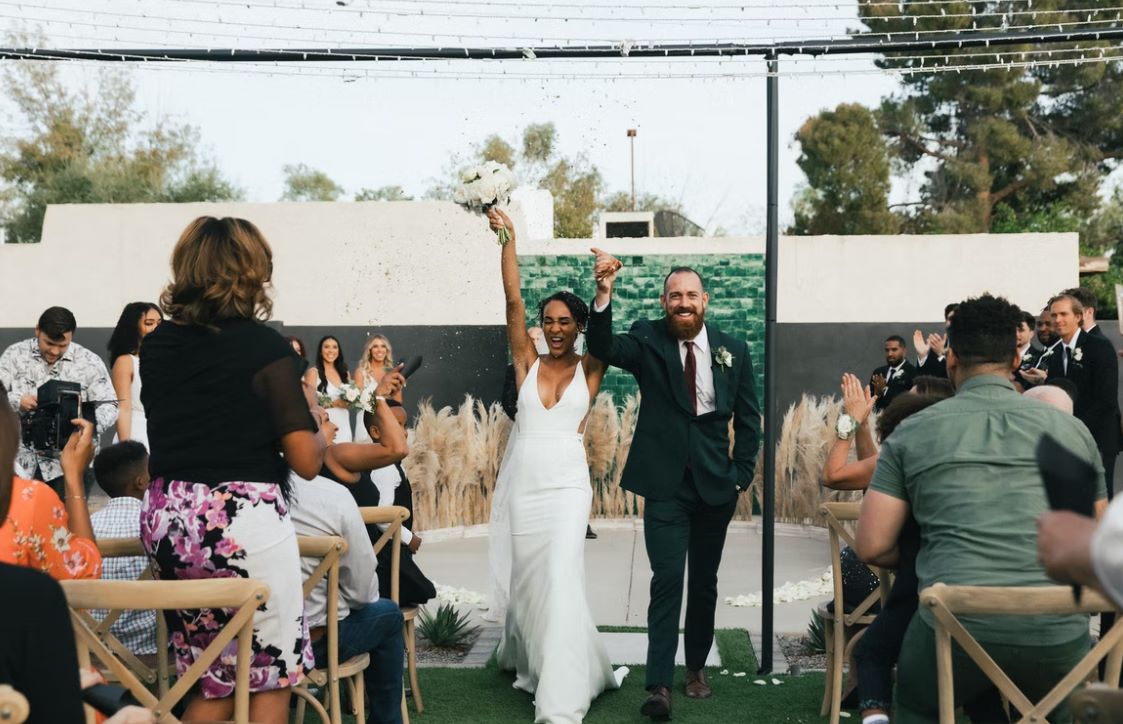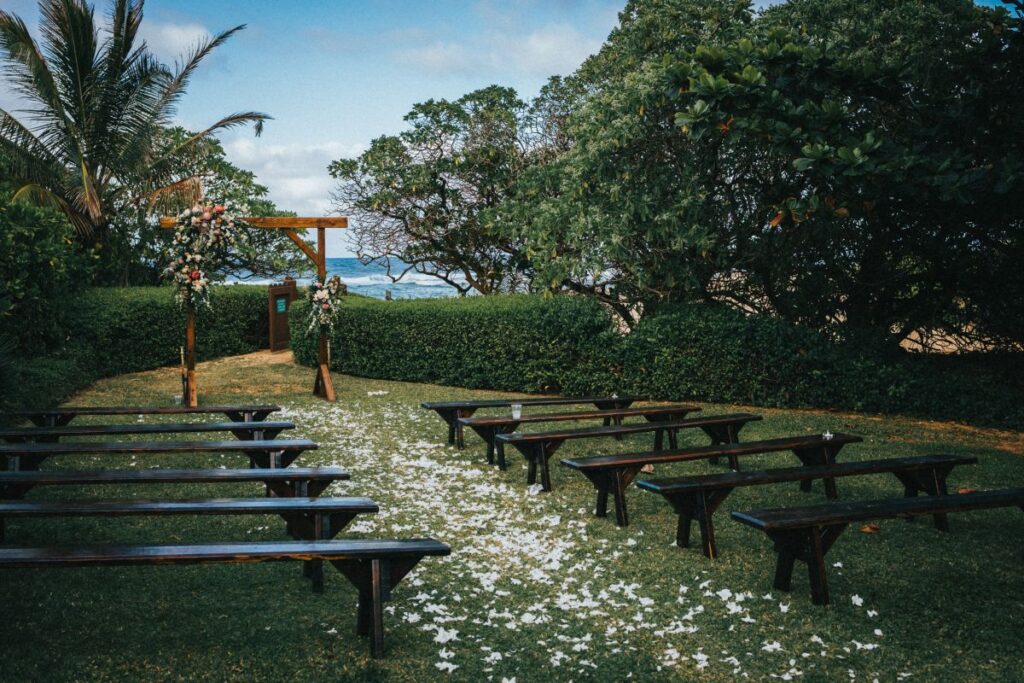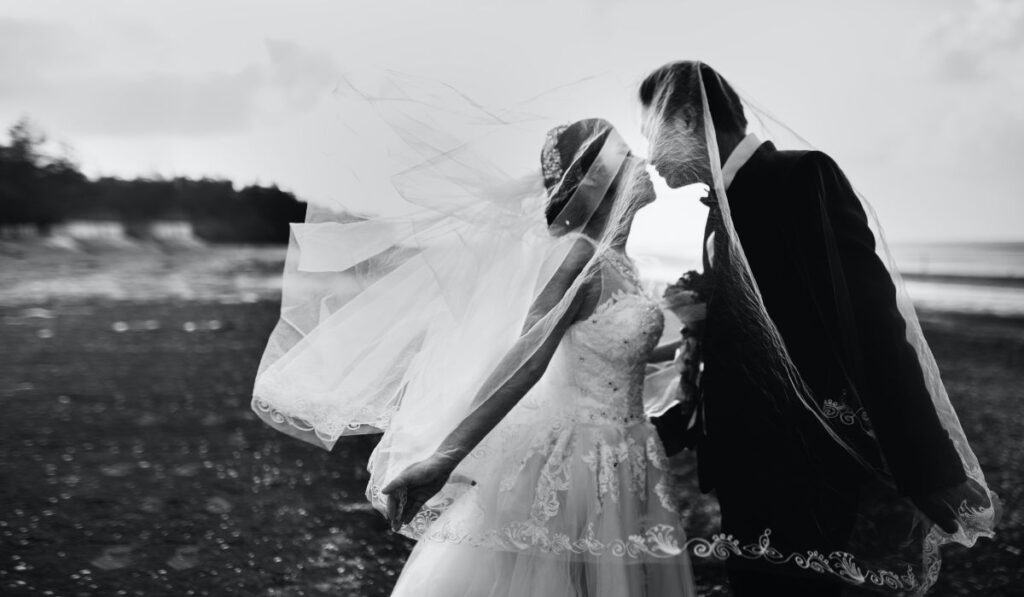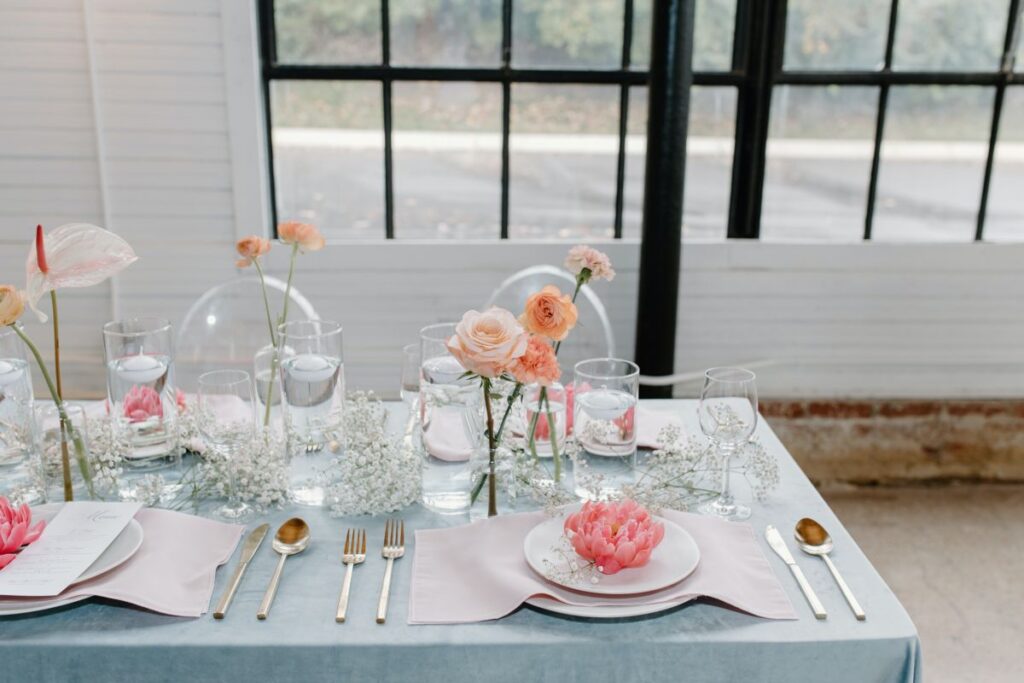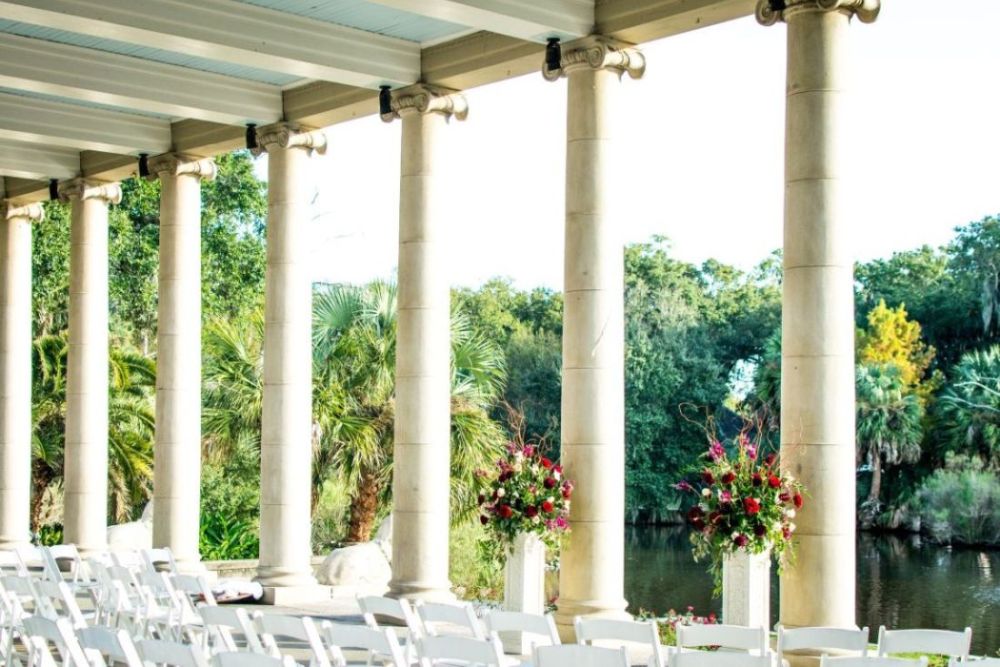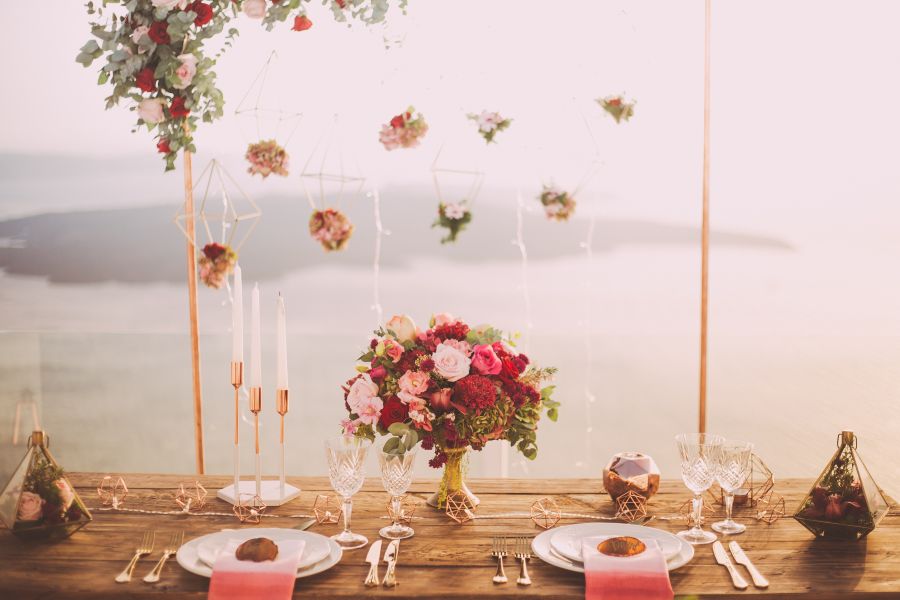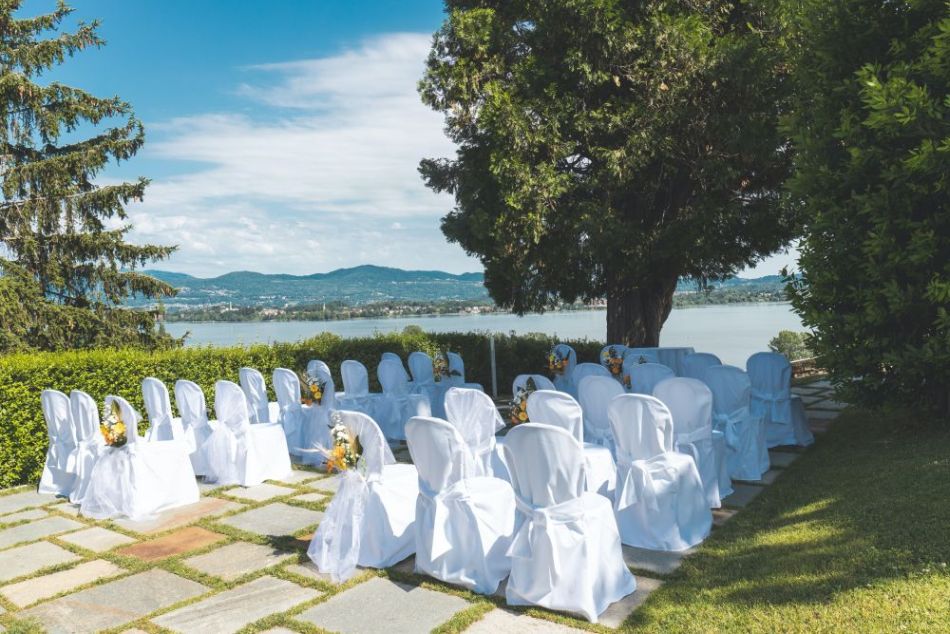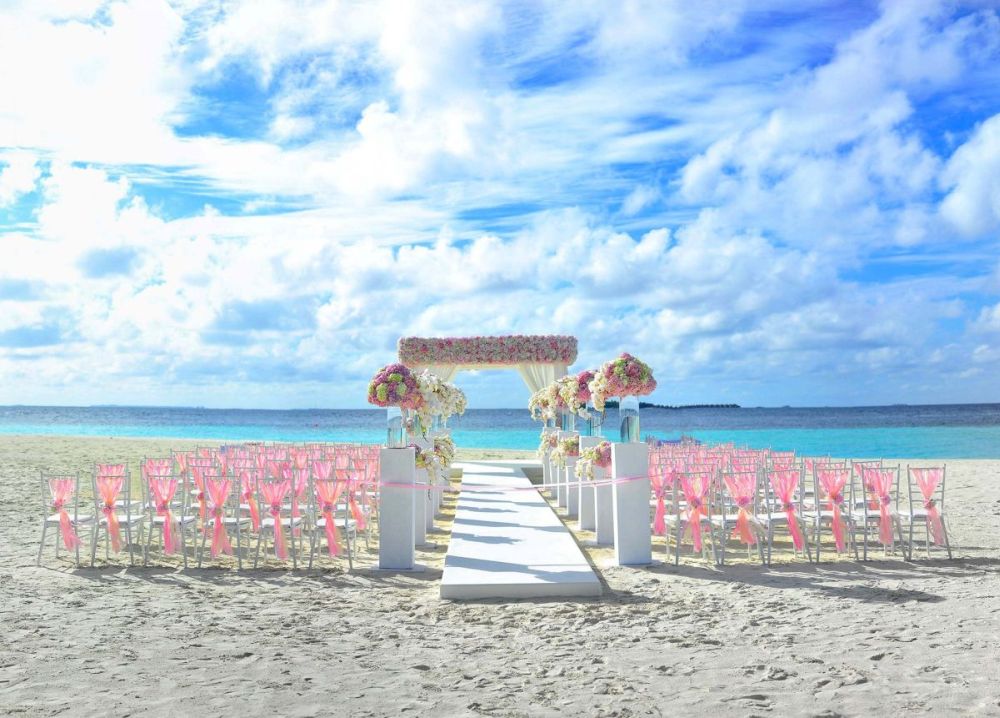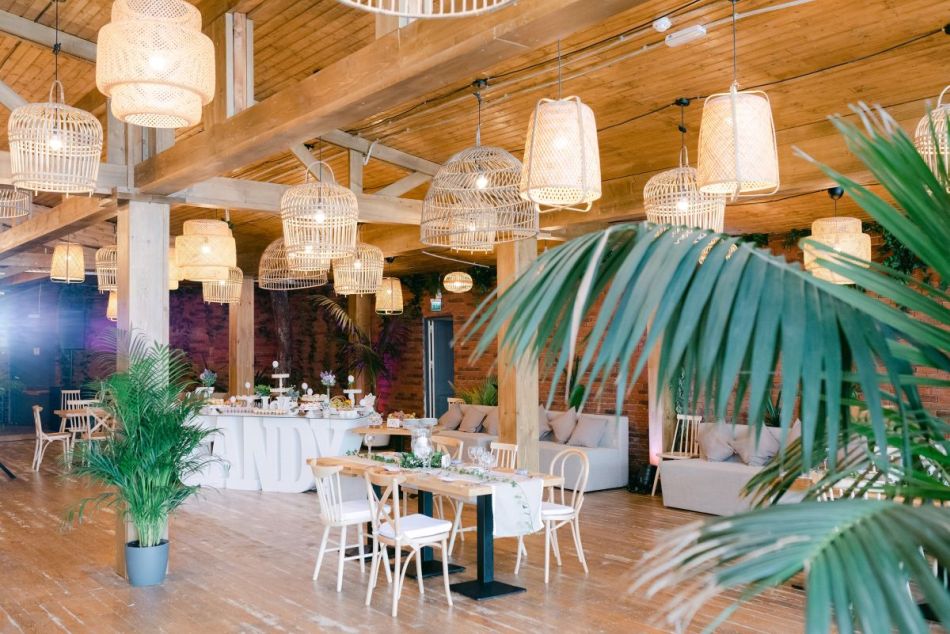No two wedding ceremonies are the same, despite the media's tendency to paint a uniform picture of the event. Weddings vary in size and sizes because each couple arranges their special day in their own special way. Looking for the ideal location for your big day? Then a Melbourne wedding reception hall is the place to be. Depending on your background, beliefs, and the number of guests, you may have a hard time settling on a wedding theme.
Wedding-related phrases are the first ones you'll need to learn, and by time you leave, you'll know your Bomboniere versus your corsages. So, here We explain some of the most well-liked wedding themes, ranging from the conventional to the bohemian and the unconventional. There will be a list of suggested locations for each topic.
Every wedding shares some commonalities. They might have some commonalities, but there are also major distinctions amongst them. What follows is a description of the various kinds of weddings and their associated traditions. A wedding ceremony preparation trip might be challenging, but it should reflect your shared vision for the big day with your partner. It's often a good idea you sit down and discuss your wedding preparations well in advance of the big day. Cultural, national, and other contextual considerations, in addition to those already discussed, have a profound impact on the specifics of a wedding's ceremony.
Religious Wedding Ceremony Traditions
For a religious ceremony can take place at a church, at least one of persons getting married must be a regular attendee. When the couple has finished exchanging their vows, they can either have the reception there at priest's reception hall or choose another site.
While many contemporary brides may choose for unorthodox elements, the great majority still adhere to traditional practises. An old-fashioned ceremony is what most people picture when they think of a wedding, and that's precisely what they get. These weddings are usually hosted in hotels, halls, banquet halls, or marquees and feature a three-course sit-down supper, floral arrangements or other forms of traditional decor, and a large, stunning white dress.
Even if a couple gets married in a religious ceremony, they still need to get a marriage licence from of the municipal or county clerk of court so that the state will recognise their marriage.
FAQs About The Different Types Of Weddings
Learn about different types of wedding ceremonies: civil, religious, military, and same-sex.
The 7 Most Common Wedding Planning Questions Brides Ask
- What Exactly Do You Do as a Wedding Planner?
- Do I Need to Include the Dress Code on the Invite?
- What Do I Need to Know About Venue Contracts?
- Do We Need a Choice of Entrée for a Seated Dinner?
- Do We Need Welcome Bags for Out-Of-Town Guests?
- Do We Have to Do Favors?
Even though lots of couples are choosing to have unique and alternative weddings these days, there is still quite a number that stick with traditional and formal weddings. In general, these usually entail a beautiful white dress for the bride and tuxedo for the groom
Traditional Religious Wedding Ceremony. Jewish Weddings. Islamic Weddings.
Civil Ceremony Wedding.
Formal Wedding.
Informal Wedding.
Destination Wedding.
Cruise Wedding.
Elopement Wedding.
Vintage Style Wedding. Rustic.
Jewish Marriages
Both Orthodox and Reform liturgies fall into this category. The many Jewish wedding rites share certain elements, though. The huppah is used to protect the bride, groom, wedding party, and Jewish officiant from the elements during the event. The chuppah was the bride's chamber in biblical times. The act of the a couple entering the bedroom together has come to be symbolised by this word. The wedding band must be made entirely of gold and may not feature any stones or other embellishments. He puts the ring on her finger and tells her, "According to the torah of Moses and Israel, you are righteous to with this ring." Just after they exchanged vows, he poured his new wife a glass of wine.
At the reception, the groom crushes his wine glass under his foot as a sign of Jewish sorrow for the destruction of Chapel in old Jerusalem. To prevent wounds and splinters, the wine glass is wrapped in cloth before being crushed. The Sabbath is a sacred day, and no Jewish couple must get married on that day. While holidays begin at sunup, Jewish weddings are traditionally held on Saturday evenings. Men are expected should cover their heads in the synagogue as a sign of respect for God. Therefore, yarmulkes are given to all visitors free of charge.
Islamic Marriages
Islamic wedding rites tend to be low-key and straightforward. The wedding ceremony takes place in the mosque, with the Imam officiating and the couple's loved ones and community members looking on. You're free to wear whatever colour you like, but please be respectful of others and wear modest clothing. All guests are asked to remove their footwear and place it in specified areas. Taking off one's shoes is more of a hygiene practise than a spiritual one, given that worshippers frequently genuflect or kneel. At the conclusion of the ceremony, guests traditionally exchange "salaam aleikum" greetings. Most receptions, which occur after wedding ceremonies, are hosted at a restaurant and rented hall. Aside from abiding by Islamic dietary requirements, there is no difference between these festivities and those hosted in nations where alcohol is given.
Civil Ceremonies
A civil authority may occasionally preside more than a public ceremony for a big group, although marriages of this size are extremely unusual. The chairs should be arranged in perfect lines along either side aisle, just as they would be for a conventional wedding. If indeed the civil ceremony was going to be held in a tiny home or even the judge's chambers, then you should follow the traditions for a casual wedding. Even though Justice of the Peace ceremonies tend to be brief and formal attire is still appropriate. No one other than the bride, groom, and witnesses (who need not be family or friends of the couple) must be present for a civil wedding. In addition to the bridegroom, groomsmen, maid of honor, person to hand back the bride, bridesmaids, flower girls, ring bearers, flower girls, flower boys, ushers, and maybe young child attendants, there may also be friends and family members present.
Weddings Of Roman Catholics
Such wedlocks are traditionally performed in the presence of a priest. It's unclear if a wedding Mass is performed. In several traditions, the groom "gives" his daughter to the waiting bridesmaids and groom as the bride walks down the aisle. Afterward, he finds the first empty row on the left side of the church and settles in. It is customary for all of the guests at a wedding to take Communion along with the bride, groom, and their attendants during the Mass. Guests who do not practise the faith are expected to remain silent throughout the Eucharist. Instead of using the tiny seat at someone's feet as a footstool, you should kneel there and pray. Friends and family members often provide reading from the Bible during religious gatherings.
Formal Marriage
A formal wedding is one that adheres strictly to long-standing customs, such as having an elaborate reception and ceremony with attendants, ushers, monogrammed office supplies, a specified seating chart, and numerous other dos and don'ts. Guests at this style of wedding might be as numerous as the happy couple can afford to invite.
Informal Marriage
If the happy couple desires a low-key wedding, it is entirely up to them to determine the level of formality or informality of the ceremony and reception. Most of the time, people adopt a hybrid tradition that combines characteristics of both cultures, or they adhere to only a subset of each. In addition, the atmosphere is warmer and friendlier there.
Location-Based Wedding
Despite popular belief, tropical beaches and French chateaux are not the only exotic locations suitable for destination weddings. Many American couples, though, are increasingly opting to exchange vows in foreign lands. Fewer guests are invited to destination weddings because of the increased expenditures connected with transportation and lodging, but the happy couple often has a second reception in their hometown. Destination weddings, in which the ceremony and reception are held in a far-flung or otherwise out-of-the-ordinary locale, are gaining popularity. Because of the high costs of travel, less than twenty guests is typical for a destination wedding. Nowadays, many couples planning a wedding also wish to take their honeymoon there. You can't deny its ingenuity if you're being serious.
Wedding On A Cruise
The concept of a wedding on a cruise ship is a novel one that expands on the traditional notion of a wedding as a destination event. Onboard wedding photographers & event implementers help personalise every single element of anything like the intimate ceremony, which is officiated by either the ship's coach or a clergy portion at the port. Some cruise lines have begun offering live broadcasts of the event for passengers at home.
A Wedding Elopement
One's first thought upon hearing the phrase "outdoor wedding" is likely to be of a couple attempting to elope in order to marry secretly, away from not only their families but also their friends. Neither of them has any idea that they are getting married. However, in modern culture, not all elopements take place with no warning to friends and family. In some contexts, the word "elopement" is employed to suggest that now the couple is really only interested at conducting the ceremony in a remote location.
All of us can decide whether or not to spread the word to our respective networks of friends and family, even if we know they would otherwise be interested in attending the wedding. Most engaged couples entertain the idea of running away together at some point throughout the wedding planning process. Las Vegas is the most popular U.S. location for elopements, and many newlyweds choose to celebrate their union with a night out on the town after saying "I do." Although it's not necessary to make a big deal out of your elopement. Planning a elopement to the a location that has meaning again for couple is one way to have a traditional wedding that is also personal and distinctive.
Wedding In The Vintage Style
Married individuals often look to the styles and more liberal attitudes of the past for inspiration. If you select a wedding theme from another era, you can have a beautiful ceremony without resorting to black tie & white flowers. Whether a couple decides on the Roaring Twenties, the Swinging Sixties, or the Victorian age, every aspect of the wedding, from the fake hair of bridal party to the dress, venue style, decoration, and maybe even the styling of attendees, will be governed by the traditions of that century.
The site for the reception can be decorated with vintage-style touches, and if possible, guests can leave in a real old car. The reception can take the form of a soiree or a black-tie dinner with a vintage theme. To really include the concept, it would be ideal if the entire incident was set to music from the same time period.
Industrial
There has been a recent uptick in the number of unions celebrated at a factory. Metal, cable, & geometric decorations are commonplace, and they frequently take place within warehouses, loft, or repurposed halls. Soft flowers, trendy design, and repurposed furniture contrast with venue's decrepit vaulted ceilings & wooden beams.
This simple aesthetic is so versatile that it can make even the most uninspiring location feel like a party. The term "industrial" here refers to a wedding aesthetic that draws inspiration from contemporary manufacturing. This is typically the result of the location and its decor. Polished concrete, worn wood, or exposed brick are all examples of textures and materials that contribute to the "industrial style." A wedding reception in the industrial sector can take the form of a seated meal or a cocktail party, depending on the venue as well as the wishes of a newlyweds. Even if the wedding party follows traditional practises, such as having a flower girl and ring bearer, an industrial wedding's ceremony site is likely to be offbeat.
Elegance In The Modern Era
Another type a formal event, a modern and beautiful wedding, incorporates elements of a traditional and classic ceremony yet adding a hint of contemporary style. Modern invites, hair, makeup, and flower arrangements are all fair game, as are non-traditional colour palettes, sleek wedding dresses, and even non-traditional venues. A few well-executed nods to current fashion trends give this otherwise conventional wedding a touch of contemporary flair. A contemporary and sophisticated wedding may have all the traditional elements, such a curl up supper and toasts. The bridesmaids, groomsmen, flower girls, & page boys are all essential parts of a contemporary and sophisticated wedding.
Vineyard In Romance
Picturesque scenery is on display for wedding guests in a vineyard. It is traditional for the ceremony's decorations to reflect the outdoor or indoor location. If you're planning a wedding in a vineyard, you can't go wrong with a combination of rustic decor and accessories. The reception at the a wedding situated in a vineyard would often take the shape of a sit-down supper, with the spotlight on the cuisine, wine, and regional produce served. The wedding party usually includes the majority of a bride's and groom's friends and family, but the level of formality is up to the bride and groom.
Wedding In The Country Or On A Farm
A "country" / "farm" wedding is one that occurs on the a farm or elsewhere in the countryside, and the arrangements of the reception and the ceremony are designed to complement the natural environment. Every detail of the wedding, from the barn where the couple will exchange vows to the vintage car that will take them there, fits well into a country motif. When compared to the more narrow use of a rural theme, which is usually reserved for events taking place on a farm or in a large nation location, a rustic theme has a wider range of potential applications.
Rustic wedding decor is more of a metaphorical nod to the outdoors and rural living than a literal one, whereas country & agriculture weddings may take a more literal approach. Guests at a rural wedding are more likely to be seated during the proceedings and may be required to adhere to a smart casual or dressy uniform policy. Guests, bridal party size, and other ritual specifics are all left to a happy couple.
Group Wedding
The group wedding, also called a mass wedding ceremony, is a wedding in which multiple couples officially get married in the same time. Couples who want to celebrate their love in publicly without spending a fortune may wish to explore a group wedding, which are often offered by wedding venues & towns. When more than two people exchange vows, the location of the ceremony generally serves as the reception venue where guests toast the newlyweds with cake and champagne.
Double Wedding
The term "double wedding" refers to a ceremony where two groups of people, such as two families, exchange vows during the same time. Inside a "double wedding," two sets of newlyweds tie the knot with one set exchanging vows while the other set serves as witnesses.
Festival
Those who want their wedding to be completely different from any other wedding they've ever been to can consider having it during a holiday. Commonly, the happy couple will rent out a field and set it up way they see fit, whether it's with a tent, camping, or big outdoor party. Bunting, streamers, floral arrangements, and festoon lighting all contribute a lot of colour and energy to the atmosphere. Food will probably be served from mobile kitchens similar of those at street fairs, and there will be live music.
Military Marriage
As is customary, the enlisted members of the military should wear their dress uniforms at the wedding. They can tie the knot at a chapel just on base or in a more conventional wedding venue, the choice is theirs. Certain military weddings include the impressive Saber Arch as a salute to the bride and groom. In the United States, this is not uniform throughout the many branches of military.
DIY Marriage
If the couple decides to have a DIY ceremony, they can pick as few or as many people as they desire to be in their wedding party. If a couple wants to save money while sacrificing comfort, this is the perfect alternative for them. While conventional weddings follow a set pattern, DIY proms can have less formal dress codes and a more relaxed atmosphere. The bride and her attendants can handle her cosmetics, and she can also manufacture the party supplies and any additional accessories she wants. The couple has the option of throwing either a traditional dinner ceremony or a more relaxed cocktail party.
Proxy Marriage
Proxy weddings are arranged when one or both parties to the marriage cannot attend the actual ceremony due to circumstances beyond their control, such as military service abroad. Proxy weddings are allowed in California, Colorado, Texas, and Montana, albeit the regulations regulating them vary from state to state. When the marriage licence and other legal documents are signed in the presence of a notary public, a proxy for the groom or bride repeats the vows and attests to their truthfulness. This can be done in a formal ceremony or in City Hall with the presence of invited guests. When one partner recovers health enough just to take part in the original wedding, most couples will arrange a second ceremony.
Conclusion
Weddings vary in size and size, and each couple arranges their special day in their own special way. Depending on their background, beliefs, and the number of guests, they may have a hard time settling on a wedding theme. The most well-liked wedding themes range from the conventional to the bohemian and the unconventional, and there are a list of suggested locations for each topic. Religious weddings are usually hosted in hotels, halls, banquet halls, or marquees and feature a three-course sit-down supper, floral arrangements or other forms of traditional decor, and a large, stunning white dress. Even if a couple gets married in a religious ceremony, they still need to get a marriage licence from the municipal or county clerk of court so that the state will recognise their marriage.
Jewish and Islamic wedding rites share certain elements, such as the huppah, chuppah, and wedding band. The huppah is used to protect the bride, groom, wedding party, and Jewish officiant from the elements during the event, while the chuppah was the bride's chamber in biblical times. The wedding band must be made entirely of gold and may not feature any stones or other embellishments. At the reception, the groom crushes his wine glass under his foot as a sign of Jewish sorrow for the destruction of Chapel in old Jerusalem. The Sabbath is a sacred day, and no Jewish couple must get married on that day.
Men are expected to cover their heads in the synagogue, and yarmulkes are given to all visitors free of charge. Islamic wedding rites tend to be low-key and straightforward, with the Imam officiating and the couple's loved ones and community members looking on. Guests are asked to remove their footwear and place it in specified areas, and at the conclusion of the ceremony, guests traditionally exchange "salaam aleikum" greetings. Civil ceremonies may occasionally preside more than a public ceremony for a big group, and the chairs should be arranged in perfect lines along either side aisle, just as they would be for a Jewish wedding.
Content Summary:
- No two wedding ceremonies are the same, despite the media's tendency to paint a uniform picture of the event.
- Weddings vary in size and sizes because each couple arranges their special day in their own special way.
- Looking for the ideal location for your big day?
- Then a Melbourne wedding reception hall is the place to be.
- Depending on your background, beliefs, and the number of guests, you may have a hard time settling on a wedding theme.
- Wedding-related phrases are the first ones you'll need to learn, and by time you leave, you'll know your Bomboniere versus your corsages.
- So, here we explain some of the most well-liked wedding themes, ranging from the conventional to the bohemian and the unconventional.
- There will be a list of suggested locations for each topic.
- Every wedding shares some commonalities.
- They might have some commonalities, but there are also major distinctions amongst them.
- What follows is a description of the various kinds of weddings and their associated traditions.
- A wedding ceremony preparation trip might be challenging, but it should reflect your shared vision for the big day with your partner.
- It's often a good idea you sit down and discuss your wedding preparations well in advance of the big day.
- Cultural, national, and other contextual considerations, in addition to those already discussed, have a profound impact on the specifics of a wedding's ceremony.
- For a religious ceremony to take place at a church, at least one of persons getting married must be a regular attendee.
- When the couple has finished exchanging their vows, they can either have the reception there at the priest's reception hall or choose another site.
- While many contemporary brides may choose for unorthodox elements, the great majority still adhere to traditional practices.
- An old-fashioned ceremony is what most people picture when they think of a wedding, and that's precisely what they get.
- These weddings are usually hosted in hotels, halls, banquet halls, or marquees and feature a three-course sit-down supper, floral arrangements or other forms of traditional decor, and a large, stunning white dress.
- Even if a couple gets married in a religious ceremony, they still need to get a marriage licence from the municipal or county clerk of court so that the state will recognise their marriage.
- Both Orthodox and Reform liturgies fall into this category.
- The many Jewish wedding rites share certain elements, though.
- The huppah is used to protect the bride, groom, wedding party, and Jewish officiant from the elements during the event.
- The chuppah was the bride's chamber in biblical times.
- The act of a couple entering the bedroom together has come to be symbolised by this word.
- The wedding band must be made entirely of gold and may not feature any stones or other embellishments.
- He puts the ring on her finger and tells her, "According to the torah of Moses and Israel, you are righteous with this ring."
- Just after they exchanged vows, he poured his new wife a glass of wine.
- At the reception, the groom crushes his wine glass under his foot as a sign of Jewish sorrow for the destruction of Chapel in old Jerusalem.
- To prevent wounds and splinters, the wine glass is wrapped in cloth before being crushed.
- The Sabbath is a sacred day, and no Jewish couple must get married on that day.
- While holidays begin at sunup, Jewish weddings are traditionally held on Saturday evenings.
- Men are expected should cover their heads in the synagogue as a sign of respect for God.
- Therefore, yarmulkes are given to all visitors free of charge.
- Islamic wedding rites tend to be low-key and straightforward.
- The wedding ceremony takes place in the mosque, with the Imam officiating and the couple's loved ones and community members looking on.
- You're free to wear whatever colour you like, but please be respectful of others and wear modest clothing.
- All guests are asked to remove their footwear and place it in specified areas.
- Taking off one's shoes is more of a hygiene practise than a spiritual one, given that worshippers frequently genuflect or kneel.
- At the conclusion of the ceremony, guests traditionally exchange "salaam aleikum" greetings.
- Most receptions, which occur after wedding ceremonies, are hosted at a restaurant and rented hall.
- Aside from abiding by Islamic dietary requirements, there is no difference between these festivities and those hosted in nations where alcohol is given.

